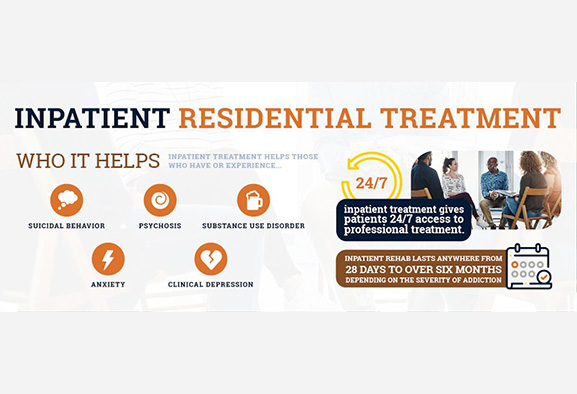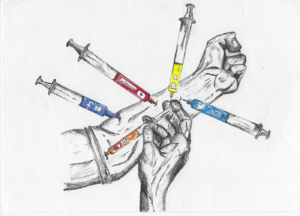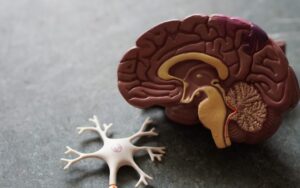In the fight against drug and alcohol abuse and addiction, finding hope is a powerful force that pushes people toward a healthier and happier life. Residential Inpatient Treatment and Detox Programs are good method that has shown amazing results.
At All American Detox, inpatient treatment programs and detox programs are the most important things. Comprehensive and well-organized programs like these have shown to be very helpful in giving people the support and tools they need to stop using drugs and live healthy life.
Let’s talk about how residential inpatient treatment and detox programs can change the lives of people who need it.
What is Residential Inpatient Treatment?
Residential inpatient treatment, also called residential rehab or inpatient rehab, is a type of addiction treatment program in which people live at a facility for a set amount of time while getting intensive therapy and support to overcome substance abuse or addiction issues.
During their stay, people can get care and supervision from a team of trained professionals 24 hours a day, 7 days a week.
The main goal of residential inpatient treatment is to give people a structured and supportive place to live that helps them get better. The people who take part get a variety of therapies, counseling sessions, and educational programs that are made to fit their needs.
Most of the time, these treatment plans are made for each person based on how they are assessed. They not only deal with the physical parts of addiction but also the emotional and mental ones.
In a residential inpatient setting, people are taken away from their usual environment, which may be full of things that trigger their addiction or give them drugs.
By getting rid of these distractions and bad influences, people can put all of their attention on their recovery journey, which increases their chances of being successful.
What are some benefits of a Residential Inpatient Treatment program?
Residential inpatient treatment offers numerous benefits for individuals seeking to overcome addiction and achieve lasting recovery.
Here are some of the advantages of this type of treatment:
- 24/7 Support and Supervision: One of the best things about residential inpatient treatment is that a team of experienced professionals is there to help and watch over the patient all the time. This constant care makes sure that people can get help and direction whenever they need it. This makes the recovery process safe and secure.
- Structured and Immersive Environment: Residential inpatient programs give people a place to live that is structured and all about recovery. By taking people away from their usual environments, which may be linked to triggers and drug use, they can focus on their healing process without being distracted.
- Personalized Treatment Plans: Each person’s journey through addiction and recovery is different, and residential inpatient programs know this and make personalized treatment plans for each person. Through thorough evaluations and assessments, the programs can make sure that their therapies and other interventions are a good fit for each participant’s needs and problems.
- Holistic Approach to Recovery: Residential inpatient treatment often adopts a holistic approach to recovery, addressing not only the physical aspects of addiction but also the emotional, psychological, and spiritual dimensions. This comprehensive approach aims to heal the whole person and promote overall well-being.
- Intensive Therapy and Counseling: Intensive therapy and counseling sessions are often part of inpatient programs. Some of these are individual therapy, group therapy, family therapy, and specialized therapies like cognitive-behavioral therapy (CBT) and motivational interviewing. These types of therapy help people understand their addiction, learn how to deal with it, and deal with problems at their roots.
- Peer Support and Community: Residential inpatient treatment helps people feel like they are part of a group. When people are around peers who understand their struggles, they can share their own stories, offer each other support, and learn from each other’s journeys. This kind of friendship often leads to a network of support that can last beyond the program.
- Focus on Aftercare and Relapse Prevention: When done right, a residential inpatient program helps people get ready for life after treatment. It puts a lot of attention on planning for aftercare and preventing relapse, making sure that participants have the tools and support they need to stay sober after they leave the program.
- Professional Medical and Mental Health Support: When a person has both medical and mental health problems at the same time, residential inpatient treatment can help by including both medical and mental health support in the treatment plan.
- Accountability and Structure: Residential inpatient programs give people a set schedule every day, which helps them learn discipline and responsibility. This organized setting helps people form healthy habits and lowers the risk of relapse.
- Higher Success Rates: Research has shown that residential inpatient treatment is more likely to work than self-guided or outpatient treatment. The program is intense and all-encompassing, which helps people get better results and keep getting better.
Now let’s talk about Detox Program.
A detox program, which is short for a detoxification program, is a type of treatment that helps people get rid of harmful substances like drugs or alcohol safely and effectively.
The main goal of a detox program is to help people deal with and get rid of the physical withdrawal symptoms that happen when they stop using drugs or alcohol.
During addiction, the body becomes dependent on the drug, and if you stop using it all of a sudden, you may have withdrawal symptoms. These signs can be different depending on the type of drug used and how bad the addiction is.
A detox program gives people a controlled, supervised space where they can go through the withdrawal process with medical support and watchful eyes.
In a detox program, doctors and nurses are trained to deal with withdrawal symptoms and can give medications or do other things to help ease pain and avoid complications.
Detox programs are not the only way to treat addiction. Instead, they are the first step in the process of getting better. People are encouraged to continue their treatment in a full addiction recovery program, like residential inpatient treatment, outpatient treatment, or counseling services after they have finished detox.
These programs deal with the mental, emotional, and behavioral parts of addiction and help people get better in the long term.
What are some benefits of the Detox Program?
Some benefits of a Detox Program include:
- Safe Withdrawal: Detox Programs provide a safe and supervised environment for individuals to undergo withdrawal from addictive substances. Medical professionals closely monitor patients to manage withdrawal symptoms and ensure their safety throughout the process.
- Minimized Discomfort: Detox employ various techniques and medications to minimize the discomfort associated with withdrawal. It helps individuals feel more at ease during the detoxification process.
- Professional Support: Detox Programs are staffed with experienced medical professionals and addiction specialists who offer compassionate support and guidance. Having professionals by their side can ease patients’ anxieties and instill confidence in their journey to recovery.
- Reduced Risk of Relapse: By getting rid of harmful substances from the body, detox programs lay the groundwork for a successful recovery. It lowers the chance of relapsing and gives people a fresh start on their way to sobriety.
- Physical and Mental Healing: Detox programs start the healing process for the body and mind. As addicting substances are taken out of the body, the person’s physical health and mental clarity get better.
- Focus on Recovery: By participating in a Detox Program, individuals can focus on their recovery without the distractions of everyday life. This immersive environment allows them to dedicate their time and energy to healing.
- Access to Resources: Detox Programs often provide access to additional resources and support systems. Patients can learn about different treatment options and aftercare plans, helping them stay on track after detoxification.
- Building Motivation: Completing a Detox Program can be a source of motivation for individuals as they witness their progress and embrace the hope of a substance-free future.
- Breaking the Cycle: Detox Programs offer a critical step in breaking the cycle of addiction. By addressing physical dependence on substances, individuals can move forward to address the underlying causes of their addiction.
- Enhanced Treatment Outcomes: Combining detoxification with other treatment modalities, such as therapy and counseling, leads to enhanced treatment outcomes. Detox prepares individuals for further therapeutic interventions, setting them up for a successful recovery journey.
Residential Inpatient Treatment and Detox Program at The All American Detox Center.
At All American Detox, we know that the path to recovery is different for each person. Our Residential Inpatient Treatment and Detox Program is made to meet the needs and problems of each patient. This makes sure that each person gets a personalized and all-around approach to healing.
The Residential Inpatient Treatment and Detox Program at All American Detox can help people change their lives for the better. All American Detox is a safe and supportive place for people who want to break free from addiction and substance abuse. It focuses on giving people hope and giving them the tools they need to get better.
Conclusion
People who are struggling with addiction can find help through the Power of Residential Inpatient Treatment and Detox Program. Residential Treatment gives patients hope and gives them the tools they need to start their road to recovery by providing a supportive community, evidence-based therapies, and all-around care.
As they move toward a better future, the power of hope becomes a guiding force that leads them away from the chains of addiction.
If you or someone you care about is addicted and wants to change and find hope, All American Detox is here to help you find a better, drug-free future.
FAQs on Residential Inpatient Treatment and Detox Program
Q: How long does a Residential Inpatient Treatment and Detox Program typically last?
Dependent on the person’s needs and progress, the length of a Residential Inpatient Treatment and Detox Program can vary. Most of the time, these programs last between 30 and 90 days, but more complicated cases may be able to get longer programs.
Q: Is a Residential Inpatient Treatment and Detox Program more effective than outpatient treatment?
Residential Inpatient Treatment and Detox Programs provide more structure and support than outpatient programs. This intensive approach is especially helpful for people with severe addictions or who need to go through detox under close supervision.
Q: What happens during detoxification in a Residential Inpatient Treatment program?
In a Residential Inpatient Treatment program, the body is cleaned of addictive substances as part of the detoxification process. Medical staff closely watch patients to help them deal with withdrawal symptoms and make sure they are safe and comfortable during the detox phase.
Q: Can family members visit their loved ones during Residential Inpatient Treatment?
Yes, many Residential Inpatient Treatment facilities encourage family involvement as it can provide crucial support for patients during their recovery journey. Visitation policies may vary depending on the facility’s guidelines.
Q: How important is aftercare planning in a Residential Inpatient Treatment and Detox Program?
Aftercare planning is a vital component of Residential Inpatient Treatment and Detox Programs. It ensures that patients have access to resources and support even after completing the program, increasing their chances of maintaining sobriety long-term.
Q: What if a patient relapses after completing a Residential Inpatient Treatment and Detox Program?
Relapses are a common part of the process of getting better. If a patient relapses, they need to get more help and start treatment again. Residential Inpatient Treatment gives people skills to help them avoid relapse and deal with triggers and temptations.
Q: Can a Residential Inpatient Treatment and Detox Program address co-occurring mental health disorders?
Yes, Residential Inpatient Treatment and Detox Programs give priority to dual diagnosis, which means that they treat both addiction and mental health disorders that are happening at the same time. This all-around approach makes sure that patients get the care they need for every part of their health.






